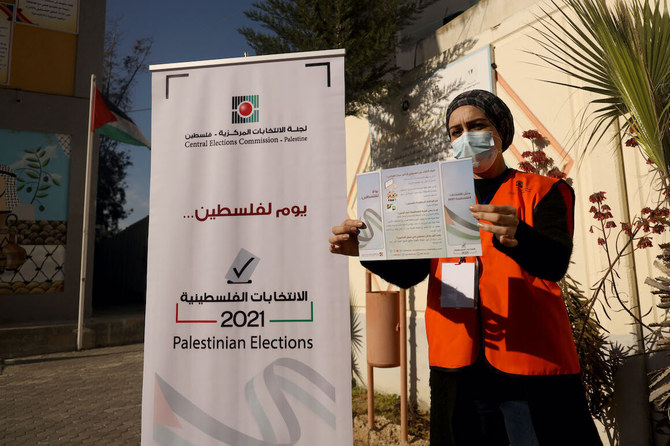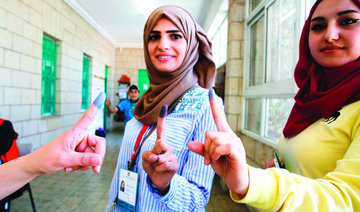GAZA CITY: After nearly a month of dialogue among Palestinian left-wing forces, they have failed to reach an agreement to create a unified list for the legislative elections scheduled for May 22.
Subsequently, four forces, the Popular Front for the Liberation of Palestine (PFLP), the Democratic Front for the Liberation of Palestine (DFLP), the People’s Party, and the Palestinian National Initiative decided to contest the elections with separate lists, while the Fida Party is set to support the Fatah list.
Left-wing parties won just seven seats in the 2006 elections. They have exchanged accusations over what is to blame for the failure to form a unified list.
Bassam Al-Salihi, secretary-general of the People’s Party, told Arab News: “What led to the failure of the efforts of the united left-wing list is the disagreement over the arrangement of the list and who is entitled to occupy the first ranks.”
As a result of this failure, left-wing forces submitted party lists to the Palestinian Central Elections Committee unilaterally, with the submissions set to be closed on Wednesday.
The Follow-up Committee for Dialogue among Democratic Forces hinted that the responsibility of the failure lay with the PFLP, which is considered the largest left-wing faction in Palestine.
Without explicitly mentioning the front, the committee accused the PFLP of supporting the language of quotas. It hinted at the “absence of the supreme national interest” and the front’s support for “interests that have nothing to do with any struggle program.”
Maryam Abu Daqqa, a member of PFLP’s political bureau, rejected the accusations, saying that they never pursued their own interests and “searched for quotas in national institutions.”
If the PFLP was looking for its own interests, it would not have frozen its membership in the Central Council and the Executive Committee of the Palestine Liberation Organization, as it prevails over the national position and the political program as a determinant of its presence in any institution or grouping, Abu Daqqa told Arab News.
According to Abu Daqqa, the PFLP was seeking, during the dialogue, an agreement based on a “political and social basis,” aimed at “real opposition to the Oslo Accords,” and to confront what it described as the “harmful dichotomy” between Fatah and Hamas.
The Oslo Accords are a pair of agreements between Israel and the PLO: The Oslo I Accord, signed in Washington, D.C., in 1993; and the Oslo II Accord, signed in Taba, Egypt, in 1995.
“How can we form a real opposition to Oslo without guarantees that no left-wing force will participate in the government, as happened in the past?” she said.
“The current circumstances differ from what they were in 2006, and what the PFLP achieved at that time does not reflect its history, its public power, and its true representation in the Palestinian street, taking into account the role of political money,” Abu Daqqa said.
Talal Abu Zarifa, a member of DFLP’s political bureau, believes that the failure to reach a unified left-wing list to contest the elections is not the end of the day.
Abu Zarifa told Arab News that the dialogue among the left-wing democratic parties showed the possibility of reaching common denominators that included the formulation of a unified political, social, and economic program.
However, left-wing political analyst Hani Habib believes that most of the leftist factions will not exceed the threshold and will not be able to reach the Legislative Council after the failure to agree on a united leftist list.
Habib cited to Arab News three main reasons that led to this failure: The difference in the political vision, especially about the Oslo Accords; the lack of confidence in the aspect of participation in the government after the elections; and disagreements over the ranking of the list based on candidate popularity.
The DFLP, which theoretically is the second leftist faction, contested the 2006 elections as part of a list that included the People’s Party and the Fida Party, and collectively won two seats.
The Independent Palestine list, headed by the Secretary-General of the National Initiative Mustafa Barghouti, won two seats.
A sharp decline in public support for left-wing forces in the Palestinian arena in recent years has given rise to other powers.
However, the left-wing factions are betting on a change in Palestine after the last legislative elections in 2006. They want to exploit the popular anger against Fatah and the internal divisions that have caused a deterioration in quality of life.




























